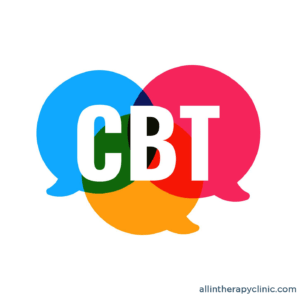
How much does CBT cost?
CBT is a type of therapy and the approach of therapy does not impact how much it costs. Costs for therapy vary by providers (therapists) and where you live. The average therapy session in Minnesota costs $60-120. Costs of care at ALL IN can range from $125 to $205 per hour because of the level of care we provide.
However, it is important to consider that the Affordable Care Act significantly expanded insurance coverage for mental health services.
Not all insurances cover mental health services equally, so be sure and check with your insurance provider.
For people who have no insurance or have not so great mental health coverage you can also check and see if therapists offer a sliding scale.
A sliding scale means that providers (therapists) will change their rate (cost per hour) based on your income.
These scales vary, and if therapy is still too expensive on that scale be sure and check into local free mental health services. For instance, in the Twin Cities area Walk-In Counseling Center offers free brief therapy services (meaning you can see a therapist at no cost for approximately 7 sessions).
How long does it take for CBT to work?
How long CBT takes for you will vary from person to person. It will also depend on the type of mental health issues that prompted to you seek out therapy. A review in the Clinical Psychology Review found that CBT for depression was more effective with 16 sessions (when compared to 8 sessions).
Be sure and talk to your therapist about goals and how you will know when you are done with therapy.
Can I do CBT on myself?
For sure, there are techniques from CBT that you can practice on your own. For instance, a thought log is a way for you to track your automatic thoughts, or your cognitive distortions.
To start a thought log, you want to write down the thought you are having, the situation that you were in when you had the thought, and the emotion you were feeling when you had that thought.
Next, you want to evaluate how true your first thought feels (0%-100% true). Then you will argue your case with your automatic thought. What evidence is there that your thought is wrong/right?
Lastly, what is a thought that still feels true, but may be a less extreme version of your first automatic thought.
For instance, say you are at work with a big project/deadline coming up, you might have an automatic thought that says, “I am a failure, I will never get everything done.” Your situation is at work under a deadline, and your feelings are panic and self-doubt. You then think of how true that thought feels, it may feel 99% true. You then will argue a case with your automatic thought (pro/con’s). For instance, part of your argument for the thought would be that this is the biggest project you have ever taken on. The argument against, might be you have never missed a deadline before, you have X and Y skill that will help you finish. Then you will see if you can find a less extreme version of that thought. You might come up with the thought “I am worried about finishing this project on time.” This thought could feel 75% true, and it is less extreme than the first thought as it is not an assessment of you as a person (i.e., “I am a failure”).
You can find different versions of thought logs online and there are even some apps for your smart phones that offer a thought log.
While some CBT techniques like this can be done on your own, it is important to be aware of if you are feeling stuck or like things are getting worse.
If that is the case, then you should consider seeking out a therapist to help you get unstuck and start to feel better.
Can Cognitive Behavioral Therapy be used to treat Post Traumatic Stress Disorder (PTSD)?
CBT’s effectiveness is not limited to treat depression, anxiety disorders, or other emotional and behavioral issues. It can also be applied to treat more mental illness, such as Post Traumatic Stress Disorder (PTSD). There is also evidence to show it is just as effective as another highly validated treatment model called Eye Movement Desensitization and Reprocessing (EMDR). CBT is also as effective as mental health medication,
For more information on Cognitive Behavioral Therapy, read this article on the American Psychological Association’s website.
You can always find a therapist that practices CBT at ALL IN.
References:
Beronio, K., Glied, S., & Frank, R. (2014). How the Affordable Care Act and Mental Health Parity and Addiction Equity Act greatly expand coverage of behavioral health care. The journal of behavioral health services & research, 41(4), 410-428.
Butler, A. C., Chapman, J. E., Forman, E. M., & Beck, A. T. (2006). The empirical status of cognitive-behavioral therapy: a review of meta-analyses. Clinical psychology review, 26(1), 17-31.
Cluxton-Keller, F. (2011). Cognitive behavioral models of family therapy. Marriage and family therapy: A practice-oriented approach.
Gautam, M., Tripathi, A., Deshmukh, D., & Gaur, M. (2020). Cognitive Behavioral Therapy for Depression. Indian journal of psychiatry, 62(Suppl 2), S223.
Grilo, C. M., Masheb, R. M., & Wilson, G. T. (2005). Efficacy of cognitive behavioral therapy and fluoxetine for the treatment of binge eating disorder: a randomized double-blind placebo-controlled comparison. Biological Psychiatry, 57(3), 301-309.
Seidler, G. H., & Wagner, F. E. (2006). Comparing the efficacy of EMDR and trauma-focused cognitive-behavioral therapy in the treatment of PTSD: a meta-analytic study. Psychological medicine, 36(11), 1515-1522.